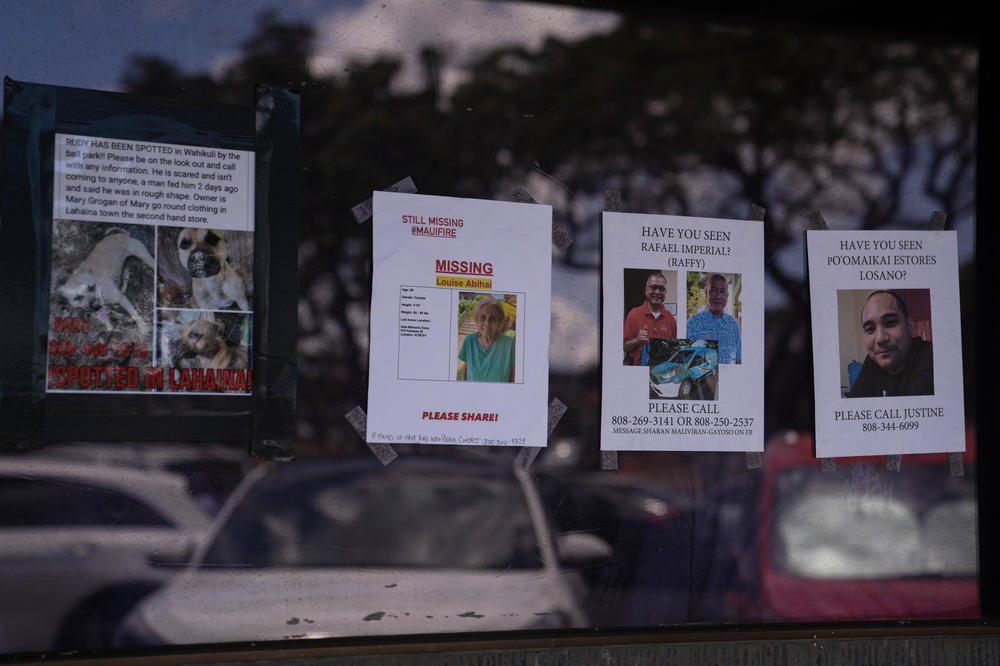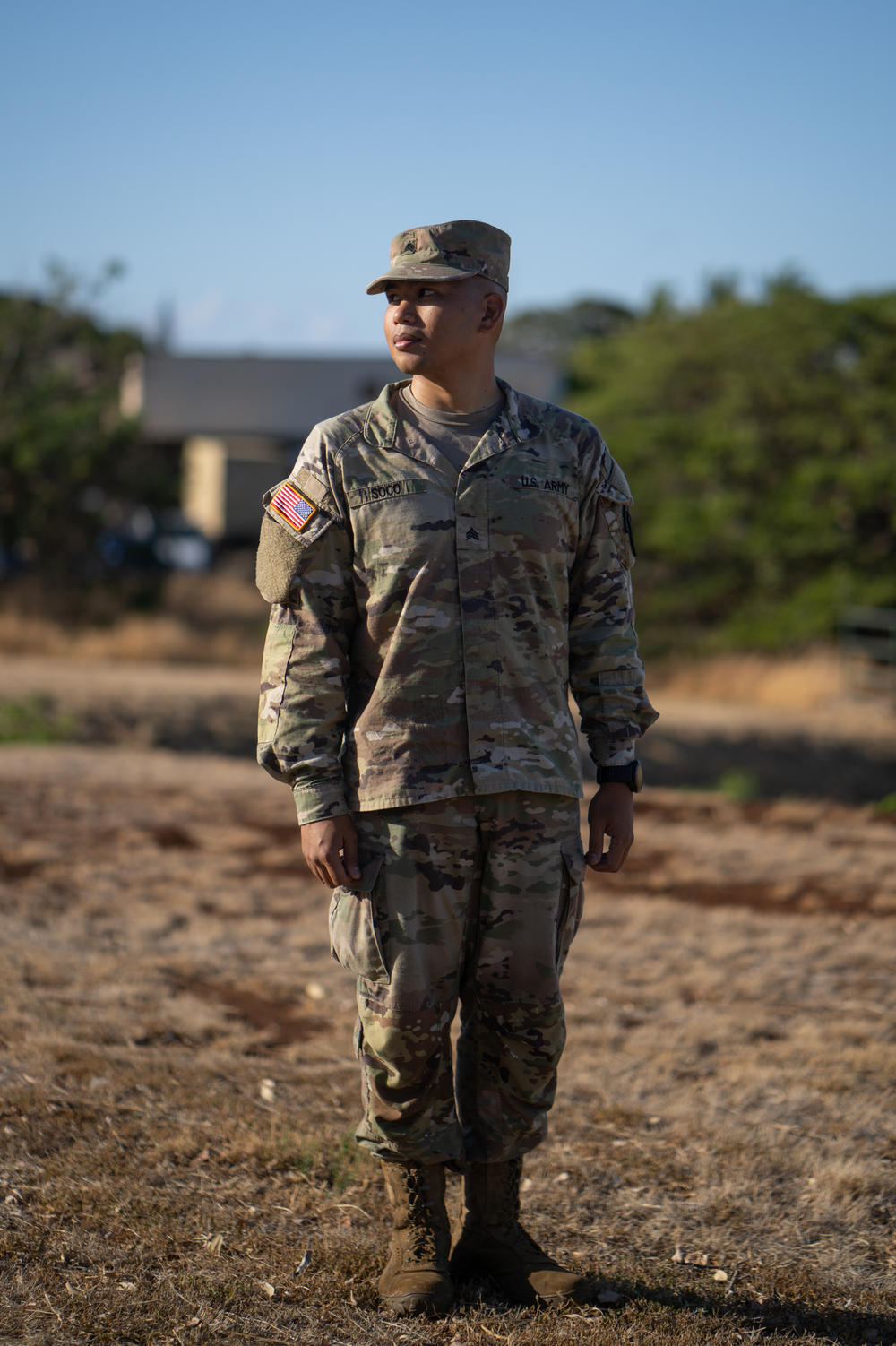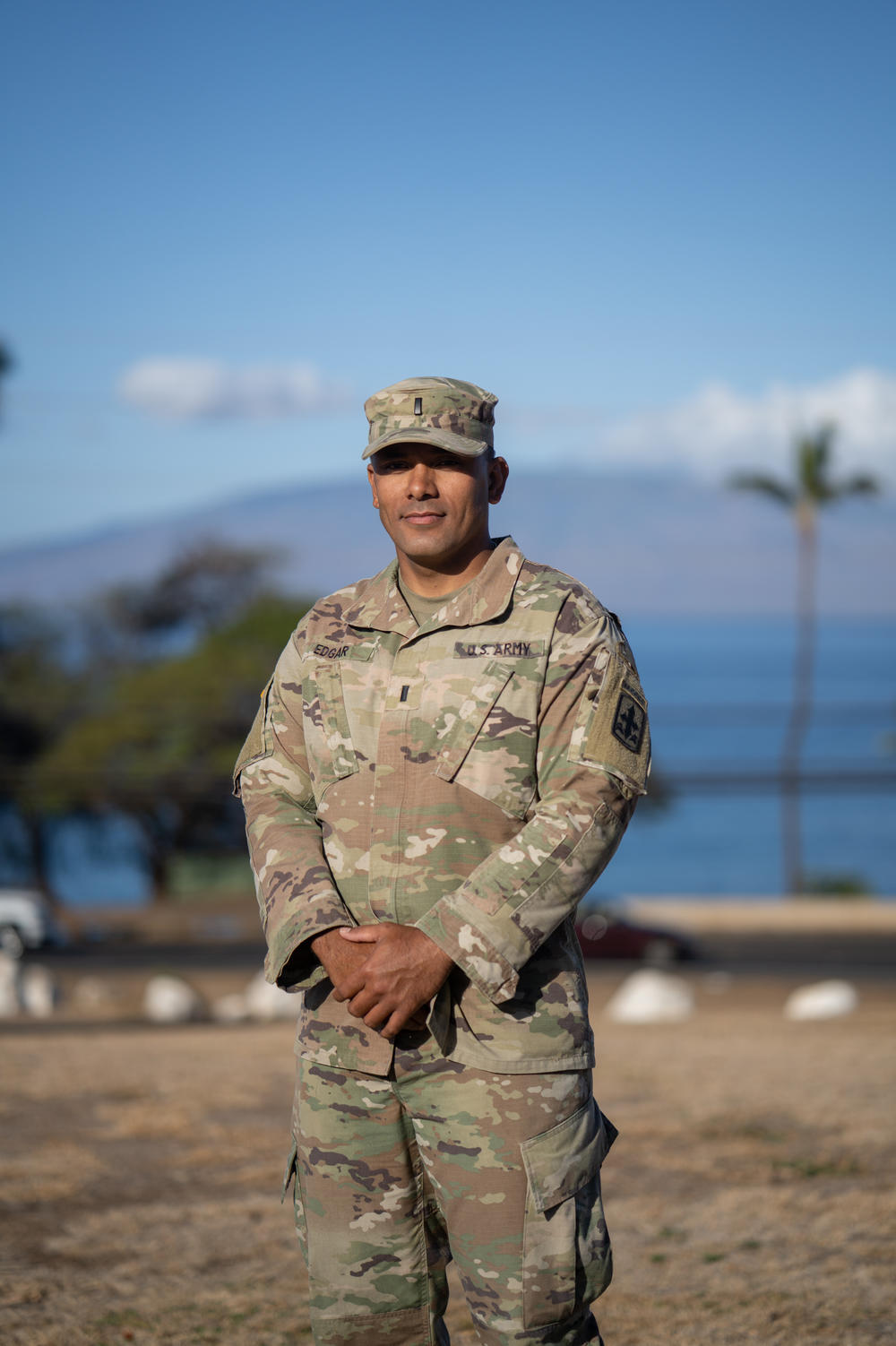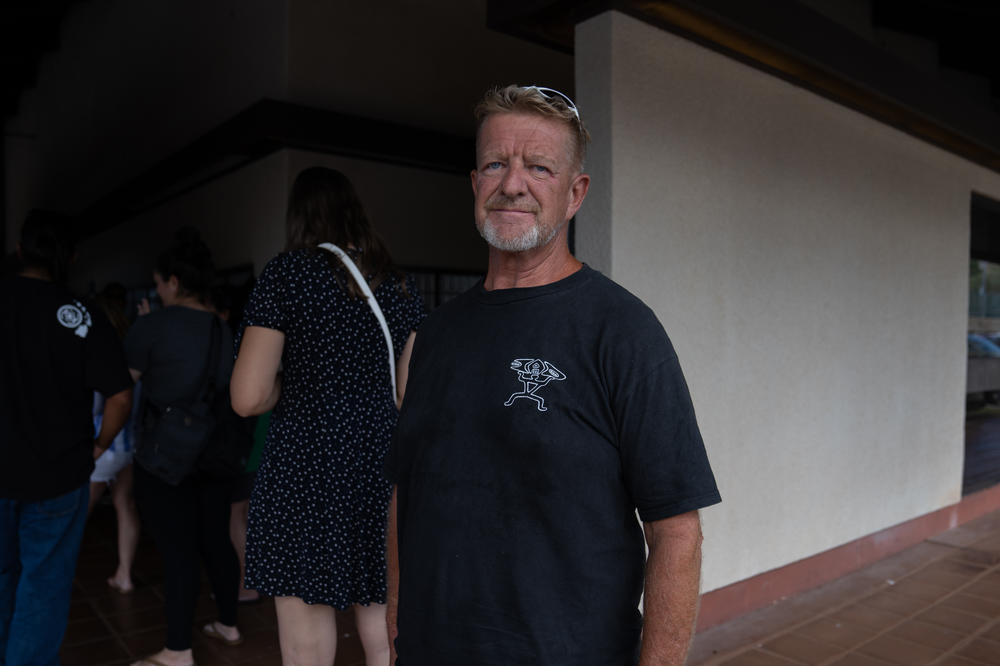Section Branding
Header Content
Lahaina wants closure. Authorities plead for patience
Primary Content
LAHAINA, Hawaii — In the burn zone of Lahaina, the search and recovery effort continues in the wake of the deadliest U.S. wildfire in more than 100 years. The work is necessarily painstaking and slow, even as families still missing loved ones remain in anguish, waiting for answers.
Commander Frank Sebastian of the U.S. Department of Health and Human Services is leading a federal team of more than two dozen pathologists, forensic dentists and coroners who have mobilized here from around the U.S. to help the overwhelmed Maui County coroner's office.
Hurricane force winds whipped the flames from tinder-dry brushland on Maui into whole neighborhoods that now infamous day of Aug. 8. It's a huge challenge trying to make IDs when the fire incinerated so much evidence.
"In this case that's a pretty difficult task due to the condition of the remains," Sebastian says. "When you're dealing with burns you have a lot of destruction of tissue. It becomes a very painstaking process to reassemble that."
If they're lucky, they have DNA samples to work off or dental records given to the teams by families of those who are unaccounted for.
But the work is long, arduous and grim, even for veterans of the team who've responded to scores other deadly wildfires and Hurricane Katrina.
"This is a very devastating response," Sebastian says.
On Maui, authorities are pleading with the public to be patient as forensics teams like Sebastian's have been working around the clock now for close to two weeks trying to find bodies in the rubble from the deadly wildfire.
Less than half of the known 115 fatalities have been identified. At least 95% of the burned area around Lahaina has been searched – but teams are still working through some of the bigger buildings.
Sgt. Manuel Soco is with a U.S. Army search and extraction team that's also been working more than fourteen straight days now. Mostly they're clearing debris in front of the K9 units; the dogs that are trained to then go in and search for bodies.
Soco is from Maui. Several of his family members lost their homes and are staying with him. Several guys on his team lost everything as well.
But the work must go on.
"We're pretty resilient, we're high morale, we always support each other," he says.
Soco is grateful that his teams have plenty of mental health support. But it's still stressful and they're often in dangerous and precarious situations in a place many of them call home.
His boss, Lieutenant Ryan Edgar of the 93rd CBRN Enterprise Response Force knows so many fire survivors here are still desperate for some news.
"We're here to support the people of Lahaina," Edgar tells NPR. "The best we can do is help bring closure to them by identifying victims, as many of them as we can."
Maui's police chief this week said that some victims may never be accounted for.
That wasn't surprising to Curt Hanthorn, a Lahaina resident who was standing in a long line at the post office picking up his mail for the first time in two weeks. Seven of his friends died in the fire and he's sure that number will go up as the search for remains continues.
"It's hard to process. It's hard to focus on what I need to do everyday," Hanthorn says. "Honestly I gotta write a note to remind myself to bathe."
Hanthorn is shaken, but also frustrated that some of his neighbors' are getting ugly and pointing blame on social media.
"It's the electric company's fault. It's the county's fault. It's Joe Biden's fault. It's everybody's fault. They want an easy answer," he says. "The fact of the matter is, I saw it from beginning to end and it moved so fast, like a blowtorch."
And it's safe to say the recovery here — whether it's searching for loved ones or just removing debris — will be anything but fast.
Copyright 2023 NPR. To see more, visit https://www.npr.org.





